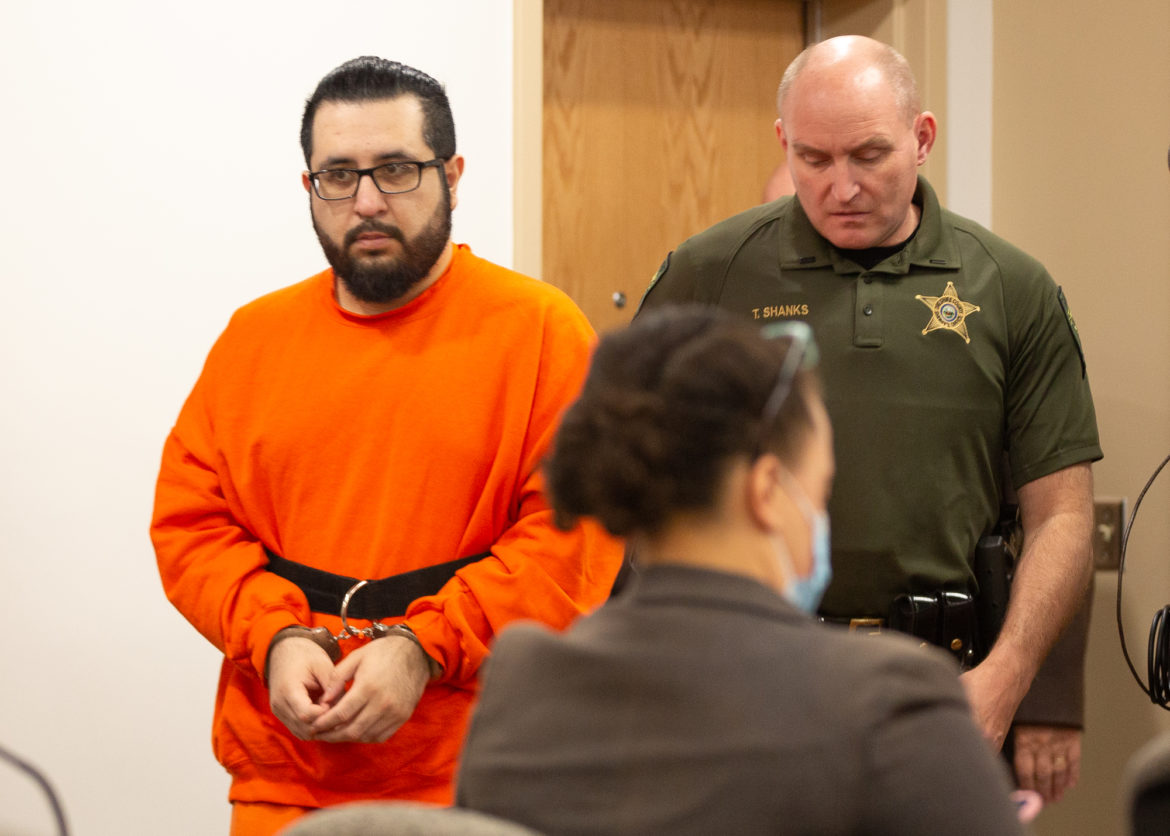By DAMIEN FISHER, InDepthNH.org
Armando Barron is going to stay in prison for the brutal murder of Jonathan Amerault after the New Hampshire Supreme Court rejected Barron’s appeal.
Armando Barron is serving a life sentence for the 2020 killing, which happened in Rindge after Barron learned that his wife, Britany Barron, had a romantic relationship with Amerault. The gruesome details of the case include Armando Barron beating and torturing Amerault before shooting him and then forcing Britany Barron to cut the head off Amerault’s corpse.
Armando Barron sought a new trial based on errors he argued that the original trial judge made, according to the appeal. The appeal cited Cheshire Superior Court Judge Elizabeth Leonard’s decision to seat a juror who did not understand the law, Leonard’s jury instructions that did not include directions for how the jurors were to consider Britany Barron’s initial lie to police, and Leonard’s ruling to withhold the unredacted Violence Risk Assessment done for Britany Barron from the defense.
None of the questions Armando Barron raised in his appeal, though, changed the outcome of the 2022 trial. The state Supreme Court issued a unanimous case order on Wednesday affirming Leonard’s decisions on all three points.
On the first point, the Supreme Court found Leonard used her judicial discretion in seating Juror Number 1, despite that juror’s seeming difficulty understanding the legal concept of proof “beyond reasonable doubt” when questioned by attorneys during the screening process. Leonard placed Juror Number 1 on the jury despite objections from the defense after asking her own questions and determining that the juror would be able to follow the court’s instructions about reasonable doubt.
“We cannot say that the trial court unsustainably exercised its discretion when it denied the defendant’s motion to strike and found juror number 1 qualified,” the Supreme Court justices wrote.
As to the second point in the appeal, the Supreme Court again sided with Leonard on Britany Barron’s lies to the law enforcement officers who first found her alone at a remote campsite where Amerault’s head and body were buried. The jury was not instructed to consider her lies while it was instructed to take Armando Barron’s lies to police into account when deliberating.
“We are not persuaded that the trial court’s failure to give a false exculpatory statement instruction regarding the wife’s statements was an error,” the justices wrote.
Britany Barron had been beaten and terrorized, forced to watch Amerault get beaten, tortured, and then murdered by her husband, forced to drive Amerault’s car to the remote campsite in Atkinson and Gilmanton Academy Grant with Amerault in the trunk, and then saw the head off Amerault’s corpse. When police found her at the campsite, Britany Barron was anticipating Armando Barron’s return with at least one of their children.
Britany Barron ended up pleading guilty to three felony counts of falsifying physical evidence in the fall of 2021 and agreed to testify at her husband’s trial. Her riveting testimony proved crucial to the state. She ended up sentenced to three and a half to seven years in prison, with two years suspended from the minimum and maximum sentences. She also got 377 days credit for time already served, setting up her parole in the spring of 2022.
The justices again sided with Leonard on the final appeal question, about Britany Barron’s Violence Risk assessment. Leonard released a redacted copy of the assessment to the defense before the trial after she determined the information removed was not material to the case. The Supreme Court justices came to the same conclusion.
“We have reviewed the unredacted version of the records that the defendant challenges and have concluded that they were neither material nor relevant to the defendant’s case,” the justices wrote.
Armando Barron is serving a life sentence without the possibility of parole for the murder, as well as another 45 to 130-year sentence for convictions on other charges related to the crime, like criminal solicitation of murder, criminal solicitation of assault, and kidnapping.





